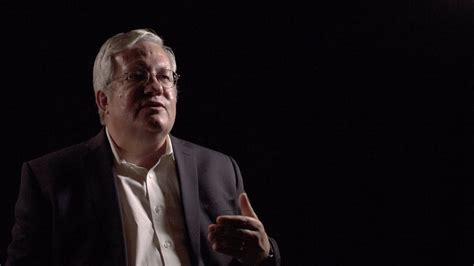Ein Zitat von Russ Feingold
Ich weiß nicht, wie es deutlicher oder klarer sein könnte: Diese gesamte Gesellschaft wird von der Macht der Konzerne in einer Weise dominiert, die möglicherweise über das hinausgeht, was im späten 19. und frühen 20. Jahrhundert geschah.
Verwandte Zitate
Aus der Tatsache, dass das 19. Jahrhundert das Jahrhundert des Sozialismus, des Liberalismus und der Demokratie war, folgt daraus nicht zwangsläufig, dass das 20. Jahrhundert auch ein Jahrhundert des Sozialismus, des Liberalismus und der Demokratie sein muss: Politische Doktrinen gehen vorüber, aber die Menschheit bleibt bestehen, und das vielleicht auch Es ist eher zu erwarten, dass dies ein Jahrhundert der Autorität sein wird ... ein Jahrhundert des Faschismus. Denn wenn das 19. Jahrhundert ein Jahrhundert des Individualismus war, kann man erwarten, dass dies das Jahrhundert des Kollektivismus und damit das Jahrhundert des Staates sein wird.
Eine der größten Einstellungsänderungen in der Welt der Kunst beim Übergang vom 19. ins 20. Jahrhundert bestand darin, dass sich der Künstler des 20. Jahrhunderts mehr mit dem persönlichen Ausdruck beschäftigte als mit der ausschließlichen Würdigung der Werte der Gesellschaft oder der Kirche. Mit dieser Veränderung ging eine breitere Akzeptanz des Glaubens einher, dass der Künstler eine Realität erfinden kann, die bedeutungsvoller ist als die, die sich buchstäblich dem Auge darbietet. Ich schließe mich dem mit Begeisterung an.
Das meiste, was ich lese, dient der Rezension oder steht im Zusammenhang mit etwas, über das ich schreiben möchte. Es ist leicht utilitaristisch. Ich vermisse auf jeden Fall das Gefühl, ein desinteressierter Leser zu sein, der nur aus Vergnügen liest, sich emotionale Situationen und anschaulich umgesetzte Szenen im Frankreich des 19. Jahrhunderts oder im Russland des späten 19. Jahrhunderts vorzustellen.
In der Mitte des nächsten Jahrhunderts, wenn das literarische Establishment die multikulturelle Zusammensetzung dieses Landes widerspiegeln wird und nicht von Assimilationisten mit ähnlichem Geschmack, ähnlichem Hintergrund und ähnlichen Ansprüchen dominiert wird, wird Langston Hughes für das 20. Jahrhundert das sein, was Walt Whitman ist war bis zum neunzehnten.
Ich bin kein Romanautor des 20. Jahrhunderts, ich bin nicht modern und schon gar nicht postmodern. Ich folge der Form des Romans des 19. Jahrhunderts; das war das Jahrhundert, das die Vorbilder dieser Form hervorbrachte. Ich bin altmodisch, ein Geschichtenerzähler. Ich bin kein Analytiker und kein Intellektueller.
Erst im späten 19. und dann im 20. Jahrhundert, mit der Reifung des Konsumkapitalismus, vollzog sich ein Wandel hin zur Kultivierung grenzenlosen Verlangens. Wir müssen dies verstehen, um zu erkennen, dass es beim spätmodernen Konsum, wie wir ihn heute kennen, nicht im Wesentlichen um Materialismus oder den Konsum physischer Güter geht. Wohlstand und verbraucherorientierter Kapitalismus haben uns weit über die unbestreitbaren Effizienzen und Vorteile von Kühlung und Inneninstallation hinausgeführt.

































